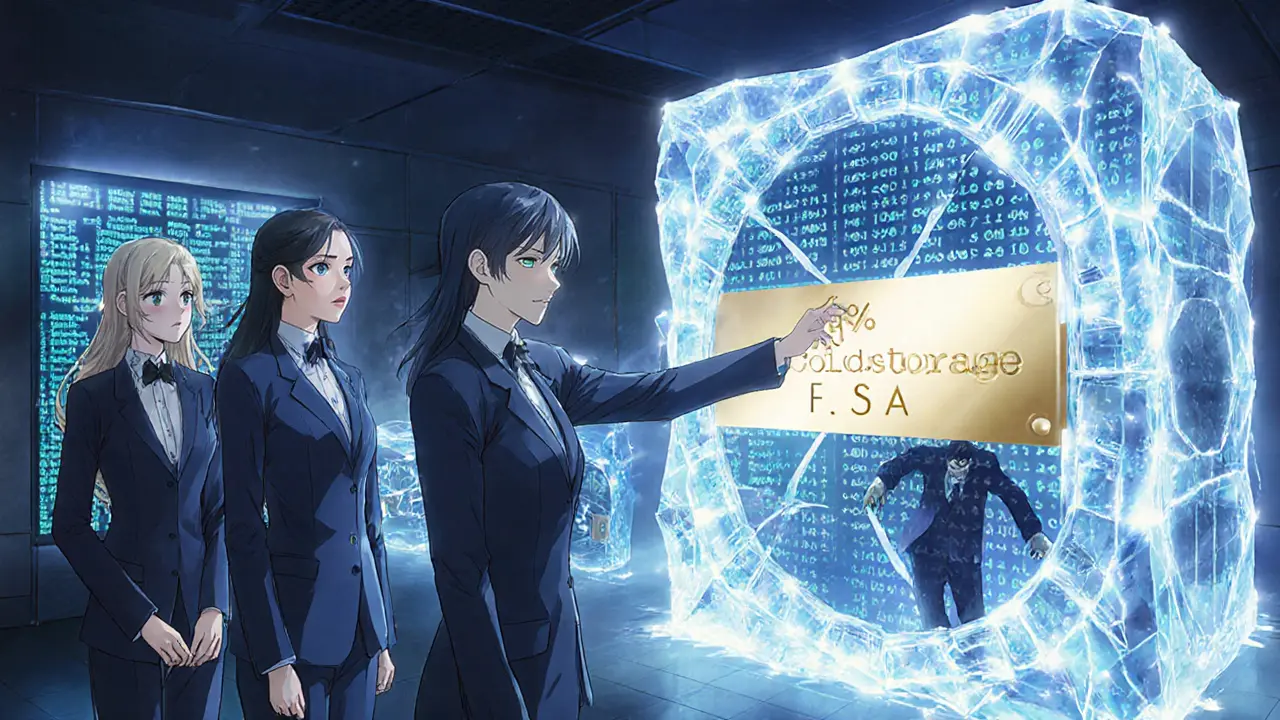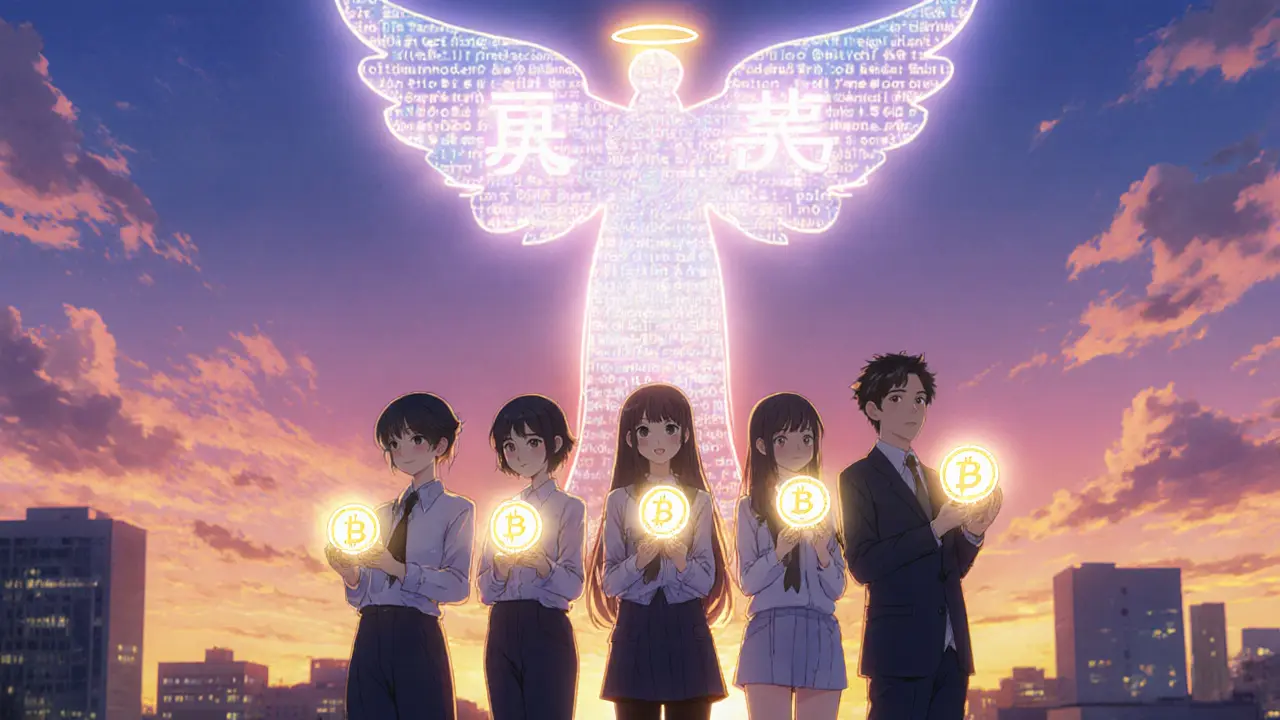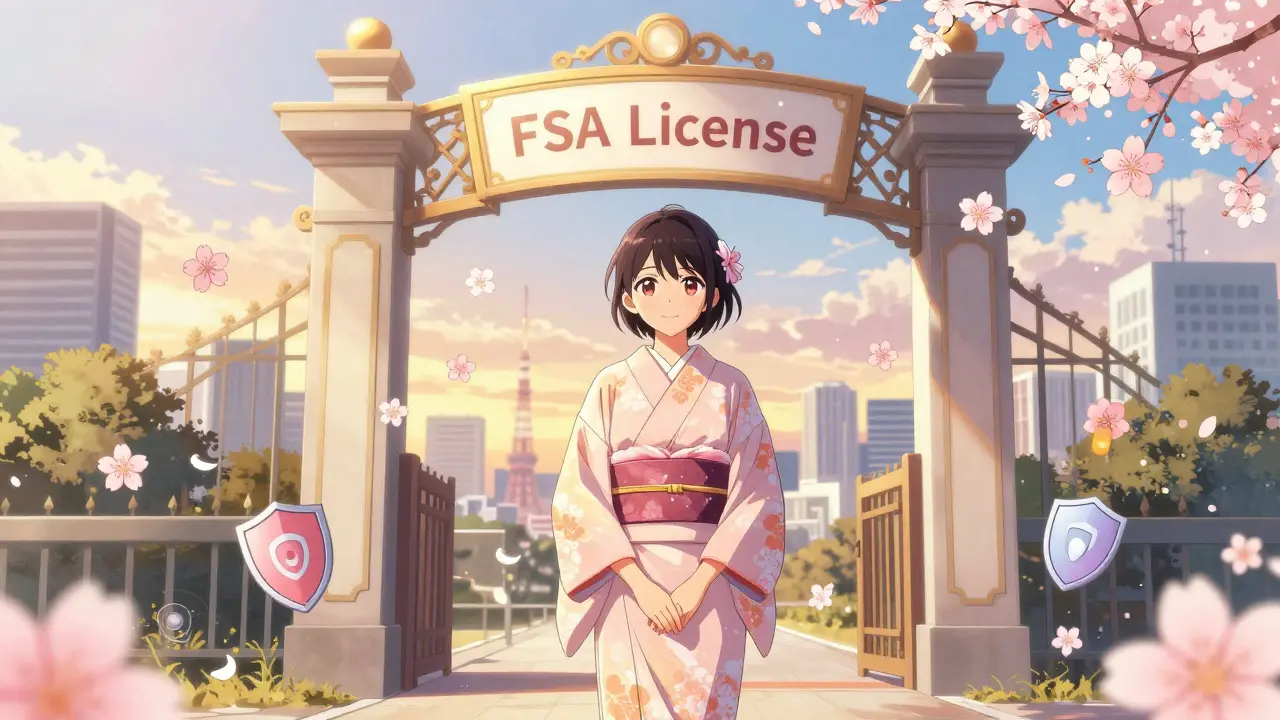Crypto Exchange Regulations in Japan by FSA: What You Need to Know in 2025

Japan Crypto Tax Calculator
Japan taxes crypto profits as "miscellaneous income" with rates up to 55%. In 2026, a new law may lower rates to 20%. This calculator helps you estimate your tax liability under both current and upcoming tax systems.
Your estimated tax liability will appear here after calculation.
Japan’s crypto exchange rules are among the strictest in the world - and for good reason
If you’ve ever tried to launch a crypto exchange outside Japan, you know how messy regulation can be. Some countries barely care. Others slap on a few rules and call it a day. Japan? They don’t just regulate - they engineer safety into every line of code, every bank account, and every cold wallet. Since 2017, the Financial Services Agency (FSA) has built a system so tight that even big global players struggle to meet it. And by 2025, it’s gotten even stricter.
There’s no such thing as a gray area here. If you’re handling crypto in Japan, you need FSA approval. No exceptions. No loopholes. No shortcuts. The cost? High. The bar? Higher. But the result? One of the safest crypto markets on earth.
How Japan defines crypto - and why it matters
Japan doesn’t treat crypto like digital gold or speculative tokens. Under the Payment Services Act (PSA), crypto assets are legally classified as “property values” - not money, not securities, but something in between. That’s important. It means exchanges can’t just treat Bitcoin like cash. They can’t gamble with it. They can’t lend it out recklessly. And they absolutely can’t mix customer funds with their own.
This definition forced exchanges to change how they operate. Before 2017, Mt. Gox collapsed with 850,000 BTC missing. After? The FSA said: “Never again.” The PSA became the foundation. Then, in June 2025, they dropped another bomb: certain crypto assets are now being reclassified under the Financial Instruments and Exchange Act (FIEA). That’s the same law that governs stocks, bonds, and mutual funds.
What does that mean? If your token acts like a security - if it promises profits based on others’ efforts, if it gives voting rights, if it’s sold like an investment - it’s now a security. Issuers must file disclosures. Trading platforms must prevent insider trading. Market manipulation? Punishable. This shift is huge. It’s not just about custody anymore. It’s about investor protection at the level of Wall Street.
The licensing process isn’t a formality - it’s a marathon
Getting licensed by the FSA isn’t like applying for a business permit. It’s more like building a bank from scratch - under a microscope.
- You need a Kabushiki Kaisha - a Japanese joint-stock company. Foreign companies can’t just register as offshore entities. They must incorporate locally.
- You need at least 10 million yen (about $65,000 USD) in capital. Many end up with far more to pass the FSA’s stress tests.
- You must have a physical office in Japan. Not a virtual address. Not a co-working space. A real office with a sign on the door.
- You need a Japanese bank account. Not just any bank - one that’s approved by the FSA and understands crypto compliance.
- You must hire full-time compliance officers who understand AML and CFT rules inside out.
- Your entire tech stack gets audited: login systems, transaction logs, withdrawal protocols, employee access controls.
The FSA doesn’t just review paperwork. They send inspectors. They interview staff. They check if your CEO even knows how cold wallets work. One exchange got rejected in 2024 because their compliance officer had never read the FSA’s 2023 guidance on asset segregation. That’s how serious they are.

The cold wallet rule: 95% offline - or you pay for it
Here’s where Japan goes further than any other country.
By law, at least 95% of customer crypto must be stored in cold wallets - offline, air-gapped, physically secured devices. No internet connection. No remote access. If you want to keep even 1% online (for withdrawals), you must back every single yen of that hot wallet with your own money. If hackers steal $1 million from your hot wallet? You pay the customers back - from your pocket. Not insurance. Not reserves. Your personal assets.
This isn’t a suggestion. It’s a legal requirement. And it’s why Japanese exchanges have the lowest theft rates in the world. In 2024, there were zero major hacks of FSA-licensed exchanges. Zero. Compare that to the U.S. or Europe, where millions vanish every year. Japan’s system doesn’t just reduce risk - it eliminates the incentive for exchanges to cut corners.
Why Japanese exchanges are trusted - even if they’re expensive
Being FSA-licensed isn’t just legal. It’s a badge of honor. When a Japanese exchange says “we’re regulated,” users believe it. That’s why Binance Japan, BitFlyer, and Coincheck still dominate the market despite higher fees. People aren’t paying more for speed. They’re paying for peace of mind.
That trust shows in the numbers. Japan has 16.8 million crypto users as of 2025. That’s 14.7% of the population. By 2026, it’ll hit 18.69 million. Revenue? Around $2 billion. And it’s growing - not because of hype, but because people feel safe.
Compare that to the U.S., where regulators still argue over whether crypto is a commodity or a security. Japan already decided. And they’re updating the rules every year to keep up.

The hidden cost: taxes and compliance
There’s one big catch: taxes.
Profits from crypto trading in Japan are taxed as “miscellaneous income.” That means rates can go up to 55%, depending on your total income. That’s higher than corporate tax in some countries. The FSA knows this is a problem. In late 2025, they proposed aligning crypto taxes with stocks - a flat 20% rate. The bill is expected in early 2026.
If passed, this could spark a new wave of retail adoption. Right now, many Japanese investors hold crypto but rarely trade - because selling triggers a huge tax bill. A lower rate could unlock billions in liquidity.
On the compliance side, ongoing costs are brutal. Exchanges spend 30-40% of their revenue on legal, audit, and security teams. Most startups can’t survive that. That’s why the number of licensed exchanges has dropped from 30+ in 2018 to 17 in 2025. The FSA doesn’t want more players. They want better ones.
What’s next? DeFi, ETFs, and tokenized assets
The FSA isn’t done. They’ve formed a DeFi Study Group - meeting every two months with academics, exchanges, and blockchain devs. Their goal? Figure out how to regulate smart contracts without killing innovation.
They’re also paving the way for spot Bitcoin ETFs - something the SEC still hasn’t approved. Japanese financial firms are already preparing products. If the FIEA changes pass in 2026, Japan could be the first major market to offer a legally sanctioned Bitcoin ETF for retail investors.
And then there’s tokenization. Real estate, bonds, even art - all being turned into digital tokens. The FSA is watching closely. They’ve already said: if it behaves like a security, it gets regulated like one. That’s not just policy. It’s a blueprint for the future.
Why Japan’s model works - and why others copy it
Japan doesn’t ban crypto. It doesn’t ignore it. It doesn’t wait for disasters to react. It builds rules before the problems happen.
Other countries look at Japan’s system and say: “Too expensive.” “Too slow.” “Too rigid.” But then they get hacked. Or they see retail investors lose life savings to scams. And suddenly, they start asking: “How did Japan avoid this?”
The answer isn’t magic. It’s discipline. Clear rules. Enforcement. And the willingness to say “no” - even to big companies. That’s what makes Japan’s crypto market the most reliable in Asia, and one of the most trusted globally.
If you’re thinking about launching a crypto business, Japan won’t be easy. But if you survive it? You’ve passed the toughest test in the industry.
Is it legal to run a crypto exchange in Japan without FSA approval?
No. Operating a crypto exchange without FSA registration is illegal under Japan’s Payment Services Act. Unlicensed platforms are blocked from banking services, face criminal penalties, and are shut down by regulators. Even foreign exchanges that accept Japanese users without a license risk being prosecuted.
How much does it cost to get licensed by the FSA?
There’s no fixed fee, but the total cost typically exceeds $500,000 USD. This includes incorporation (10+ million yen capital), legal fees, compliance staff, security infrastructure, cold wallet systems, and FSA application review costs. Many firms spend 12-18 months and over $1 million before approval.
Why does Japan require 95% of crypto in cold wallets?
To protect users from hacks. After the Mt. Gox collapse, regulators decided exchanges shouldn’t be allowed to risk customer funds on online wallets. The 95% cold storage rule forces operators to absorb the risk themselves if they keep any assets online - making security a financial priority, not an afterthought.
Are crypto taxes in Japan going to change?
Yes. In late 2025, the FSA proposed lowering crypto tax rates from up to 55% to a flat 20%, matching the rate for stocks and bonds. The bill is expected to pass in early 2026. This would make trading more attractive and reduce the incentive to hold crypto indefinitely just to avoid taxes.
Can I use a foreign crypto exchange in Japan?
Technically yes, but it’s risky. Foreign exchanges without FSA licensing aren’t legally allowed to target Japanese users or offer yen deposits. Many have been blocked by Japanese banks. Using them means no legal recourse if funds are lost, and you may be taxed without protections. FSA-licensed exchanges are the only ones offering full legal safeguards.
What happens if an FSA-licensed exchange goes bankrupt?
Customer crypto assets are legally segregated from the exchange’s own funds. Even if the company fails, those assets belong to users and must be returned. In practice, the FSA works with other licensed exchanges to transfer holdings safely. This is why Japanese users rarely lose crypto due to exchange failure - unlike in unregulated markets.


Kylie Stavinoha
November 13, 2025 AT 00:31Japan's approach is fascinating-not because it's extreme, but because it's consistent. Most countries react to crises; Japan anticipates them. The 95% cold wallet rule isn't just technical-it's philosophical. It says: if you're handling other people's wealth, you bear the cost of safety. No outsourcing responsibility. No insurance loopholes. Just accountability. That’s rare.
Diana Dodu
November 13, 2025 AT 17:34USA could learn a thing or two. We let crypto bros run wild while they pump and dump and then cry when they lose everything. Japan doesn’t care about your ‘freedom’ if it means risking grandma’s life savings. Maybe we need more regulation, not less. Stop acting like Wall Street is sacred.
Raymond Day
November 15, 2025 AT 01:2395% cold storage?!?!?!?!? That’s insane!! 😱 But… I kinda love it? Like, imagine if your bank forced YOU to keep 95% of your cash in a vault underground with no Wi-Fi? No one would ever steal from you again. Also-why does the SEC still suck? 🤦♂️
Noriko Yashiro
November 15, 2025 AT 21:19Love this. Japan gets it. Not perfect, but way ahead. Compliance costs are brutal, sure-but look at the results. Zero major hacks in 2024? That’s not luck. That’s discipline. And honestly? I’d pay extra fees just to know my coins are safe. Real safety > cheap thrills. 💪
Atheeth Akash
November 16, 2025 AT 23:58Interesting. Japan is like the strict dad who makes you clean your room before playing games. But you end up with a clean room. Maybe other countries should try it. Not saying it's easy, but it works.
James Ragin
November 17, 2025 AT 05:27Let’s be honest-this isn’t regulation. It’s state-controlled crypto. The FSA isn’t protecting users; it’s controlling the narrative. Why does the government need to dictate how you store your own digital assets? And why are they pushing tokenized assets? Is this a stealth move toward CBDCs? The timing is too convenient. Wake up.
Michael Brooks
November 18, 2025 AT 00:48One thing people miss: the 95% cold wallet rule doesn’t just protect users-it kills bad actors. If you’re trying to run a shady exchange, you can’t hide behind ‘we didn’t have enough funds.’ You have to put your own money on the line. That’s a massive deterrent. Most scams can’t survive that.
Also, the tax reform coming in 2026? Huge. Right now, people just HODL forever because selling = tax nightmare. A flat 20% could unlock real liquidity. This isn’t just regulation-it’s economic engineering.
David Billesbach
November 18, 2025 AT 15:16Of course Japan’s system is ‘trustworthy’-they’re literally forcing exchanges to be banks under a different name. This isn’t innovation. It’s crypto apartheid. You can’t even use a foreign exchange? That’s not safety-it’s isolationism. And don’t get me started on the 55% tax. This isn’t a market-it’s a gated community for the wealthy. Real freedom means choice. Japan? They’re building a digital prison with gold-plated bars.
Andy Purvis
November 20, 2025 AT 07:25I think Japan’s model is underrated. Yeah, it’s rigid. But look at the outcomes. People feel safe. That’s worth something. Maybe other countries don’t have the same culture of trust-but that doesn’t mean we shouldn’t try to build it. I’m not saying copy everything, but maybe borrow the discipline.
FRANCIS JOHNSON
November 20, 2025 AT 17:49Japan didn’t just regulate crypto-they elevated it. 🌟 This isn’t about control. It’s about dignity. Imagine if every financial system treated your assets like they mattered. Not as speculation. Not as gambling chips. But as real value. That’s what the 95% cold wallet rule says: ‘Your money is sacred.’ And for once… someone listened. The tax reform? A mercy. The ETFs? A revolution. Japan isn’t behind. It’s ahead. And we’re all just catching up.
Ruby Gilmartin
November 21, 2025 AT 12:29Let’s not romanticize this. Japan’s system is expensive, slow, and exclusionary. Only megacap exchanges survive. Startups? Dead. Innovation? Stifled. And the 55% tax? That’s punitive. This isn’t ‘trustworthy’-it’s a cartel. The FSA isn’t protecting users-they’re protecting incumbents. And don’t even get me started on how they’re using ‘security’ as an excuse to control DeFi. This is regulatory capture disguised as virtue.
Douglas Tofoli
November 21, 2025 AT 19:39Man I just read this whole thing and wow. Japan really went all in. Cold wallets? 95%? That’s wild. And the tax thing? Hope they fix it soon. I mean, 55%? That’s like getting taxed for breathing. 😅 But honestly? I’d rather pay more and know my coins are safe. No one wants to lose everything to some sketchy exchange.
William Moylan
November 22, 2025 AT 20:22They say ‘no hacks’ but what about the hidden ones? The FSA’s got ties to the Bank of Japan-this whole thing is a setup. They’re forcing everyone into centralized systems so they can track every transaction. Cold wallets? More like cold surveillance. And that ‘tokenized assets’ push? That’s the gateway to digital serfdom. Wake up people-this isn’t safety. It’s the beginning of the financial police state.
Michael Faggard
November 23, 2025 AT 16:59From a compliance standpoint, Japan’s framework is a masterclass in risk mitigation. The segregation of customer assets under PSA, combined with the FIEA reclassification of security tokens, creates a layered regulatory architecture that minimizes systemic exposure. The cold wallet mandate isn’t merely operational-it’s a structural hedge against counterparty risk. Most jurisdictions still treat crypto as a peripheral asset class. Japan treats it as systemic infrastructure. That’s why their market resilience is unmatched.
Elizabeth Stavitzke
November 24, 2025 AT 20:27Oh look, another country that thinks it’s better than everyone else because it’s ‘rigorous.’ 🙄 Japan charges $1M to start an exchange, taxes you like you’re a billionaire, and then acts like they’re saving the world. Meanwhile, the U.S. lets you trade freely-and somehow, people still don’t get robbed every week. Maybe the real problem is Japan’s obsession with control, not security.
Ainsley Ross
November 26, 2025 AT 03:13Japan’s model is a quiet revolution. No fanfare. No crypto bros on TikTok. Just steady, unglamorous discipline. The cold wallet rule? Genius. The tax reform? Long overdue. The fact that they’re even studying DeFi? That’s humility. Most regulators fear innovation. Japan’s trying to understand it. That’s rare. And honestly? It’s working. People aren’t just using crypto there-they’re trusting it. That’s the real win.
Brian Gillespie
November 27, 2025 AT 18:10Good read.
Wayne Dave Arceo
November 27, 2025 AT 22:10Japan’s system is a joke. Only a country that still uses fax machines and bowing could think this is ‘advanced.’ The FSA is a bureaucratic nightmare. And the fact that they ban foreign exchanges? That’s protectionism, not regulation. The U.S. has more innovation in a single week than Japan has in a decade. Let the market decide-not a government committee.
Joanne Lee
November 29, 2025 AT 08:43I’m curious-how do Japanese users feel about the 55% tax? Is it really deterring trading, or are most people just holding long-term? And with the proposed 20% rate, do you think retail adoption will spike, or will the regulatory burden still be too high? I wonder if the cultural emphasis on stability outweighs the incentive of lower taxes.